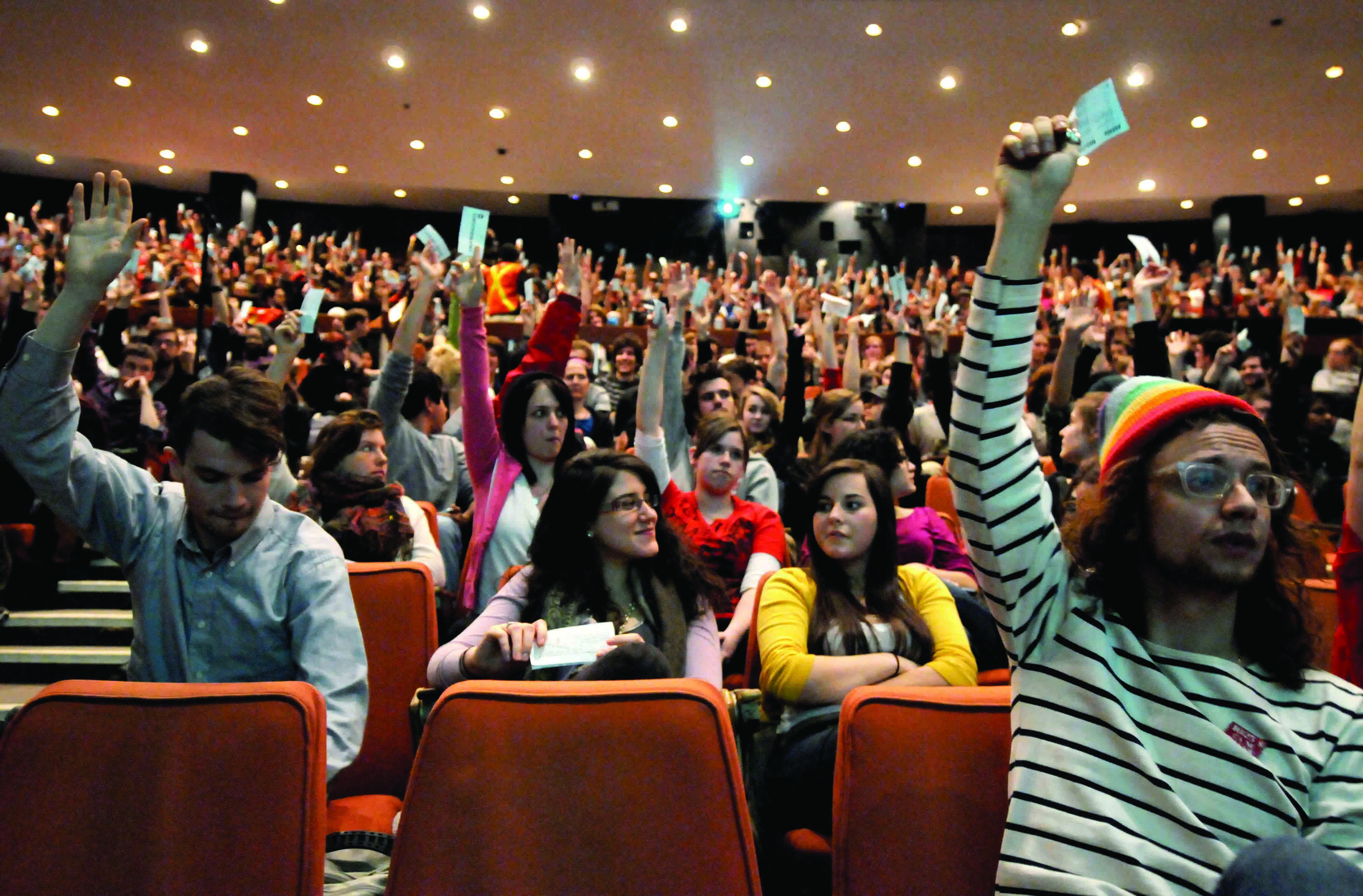Concordia undergraduate students are officially on strike as of this Thursday, following a general assembly vote last Wednesday organized by the Concordia Student Union.
But according to a statement sent to students on March 9 by Concordia Provost David Graham, the strike is not actually a “strike,” and no student can be forced to participate.
“The term ‘strike’ is specific to employees who have a collective agreement with an employer. Students are not bound by an employee collective agreement and, therefore, are not eligible to ‘strike’ and cannot be forced to do so by a student association,” he wrote.
He emphasized that it is up to the individual student to decide whether or not they wish to attend class. Graham also reminded students that by missing evaluations or handing in assignments late, they can still be subjected to academic sanctions. He said it is students’ responsibility to work out their academic standing with their professors.
Last Wednesday’s general assembly got off to a rough start, after it began an hour late due to slow registration and technical difficulties with the live stream. Students filed into the four designated areas, H-110, the 7th floor Hall lounge, the LB building and Loyola’s The Hive, making for an estimated 1,500 students in attendance, out of a possible 35,000 undergraduates.
“This is the largest general assembly that has ever happened in Concordia history by far,” said CSU President Lex Gill at the time.
After a moderated discussion, the final vote was announced as 1,152 in favour of the strike and 557 against.
Students also voted on two amendments from the floor, one to change the dates of the strike from March 22 to 29, to March 15 to 22, in order to present a more timely opposition to the provincial budget on March 20, and the other indicating that students would not be permitted to blockade building and classroom entrances. The last amendment is something that will be difficult, if not impossible, for the CSU to enforce, said VP external Chad Walcott.
At Loyola, the mood was visibly different than what was transpiring downtown. There were no accusations of bias hurled at CSU VPs Morgan Pudwell and Melissa Fuller, contrary to what happened with Walcott downtown.
During a question and answer period, one student complained that not enough advertising for the strike vote had been done at Loyola, something Fuller said she worked hard on.
“As a Loyola student and as VP Loyola, I always feel I could do better. I wish we could have gotten as many students as possible involved. I held an information session with all of Loyola’s member associations, and had them send the information out to their people,” she said. Posters had also been placed on walls around campus.
Confusion was prevalent during most of the meeting in all four rooms, as students were constantly asking what they were voting on, and if it was now time to vote in favour or against. Some students were also frustrated with the voting process.
“This process is undemocratic, because most students can’t come to vote,” said cellular and molecular biology student David De Longchamp, who also said he’s against the strike. “Having two to three days where people can just vote with ballots, that would be a lot more democratic.” The CSU’s bylaws stipulate that for general assemblies, a vote by show of placards is required.
The new strike period will be in direct conflict with polling for the CSU’s general election, happening March 20 to 22.
“At first I was very worried,” said Gill of the scheduling conflict. “It’s worded very clearly in the motion that people won’t be blocking access to buildings. It’s reassuring on the point of the elections that people will be able to get in and vote.”
Despite the overwhelming majority vote, not all students were pleased with the outcome. Bjorne Rodal, a political science student, said that though he understands where his peers are coming from, he doesn’t support the cause.
“Students should pay for the service they’re provided,” said Rodal.
The Graduate Students’ Association also voted for an unlimited general strike on March 6, which was set to begin this past Monday.
Concordia spokesperson Chris Mota explained that though the university has not announced plans to add additional security during the upcoming strike, they have been monitoring protest activity and will continue to do so.
“Each event is different and each poses different challenges. It’s impossible to speculate on how each will be handled,” she said.
There was no date in the actual motion to hold a vote to prolong the strike past March 22, but the resolution does state that students have the ability to call another GA if they so choose. Gill said that most likely the CSU will not hold another vote to renew the strike, unless called upon to do so by students.
A petition is set to begin circulating this week demanding that the Arts and Science Federation of Associations call a GA of its own to vote on the strike. In order for the petition to be accepted, it would require 2.5 per cent of the regular members, so approximately 375 signatures. A date for the proposed GA has not yet been set.
The petition has been endorsed by Cassie Smith, former CSU judicial board chair, and CSU councillor Irmak Bahar.
With files from Joel Ashak.
